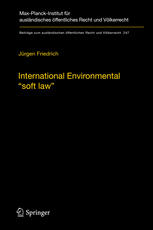

Most ebook files are in PDF format, so you can easily read them using various software such as Foxit Reader or directly on the Google Chrome browser.
Some ebook files are released by publishers in other formats such as .awz, .mobi, .epub, .fb2, etc. You may need to install specific software to read these formats on mobile/PC, such as Calibre.
Please read the tutorial at this link: https://ebookbell.com/faq
We offer FREE conversion to the popular formats you request; however, this may take some time. Therefore, right after payment, please email us, and we will try to provide the service as quickly as possible.
For some exceptional file formats or broken links (if any), please refrain from opening any disputes. Instead, email us first, and we will try to assist within a maximum of 6 hours.
EbookBell Team

5.0
20 reviewsIn international negotiations, the question of the design and the legal form of the negotiated instrument is as complex as it is often controversial. Intended as a read for both practitioners and academics, this book provides a comprehensive treatise of the characteristics, the potential and the limits of nonbinding instruments in international environmental law and governance. An extensive overview and typology of nonbinding instruments as well as several case studies from the areas of fisheries (FAO), hazardous substances (UNEP/FAO) and corporate social responsibility (OECD) provide the material for an in-depth analysis of the role of nonbinding instruments on all levels of governance. The book demonstrates the potential but also highlights the limits of nonbinding instruments in the interplay with customary and treaty law (e.g. UNCLOS, WTO) as bases for interinstitutional linkages and as tools to shape the behaviour of states and private actors. Legitimacy challenges arising from this form of exercise of authority are then discussed in the final chapter, alongside with remedies to address possible concerns.